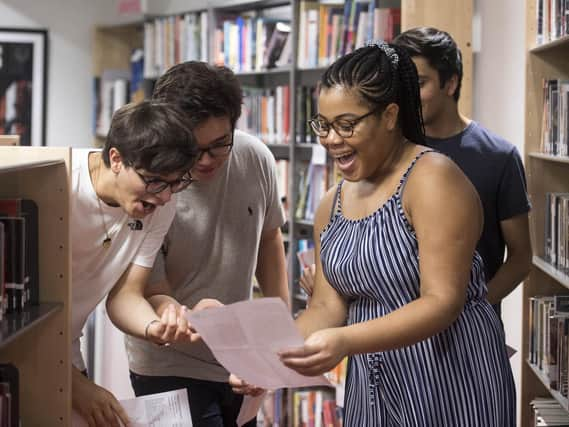Education has been 'chaotic' in pandemic, Yorkshire leader says, as Government slammed for 'unforgivable' lack of contingency plans


Lessons were not learned from school closures and cancelled exams in the first lockdown, the Institute for Government found, which led to a case of “pause, rewind, repeat”.
Ahead of next week’s A-Level results and GCSE figures later in the month, the report entitled ‘Schools and coronavirus: The Government’s handling of education during the pandemic’ described the period after schools first closed in March 2020 as “easily the most disruptive period in children’s education since at least the start of the Second World War”.
Advertisement
Hide AdAdvertisement
Hide AdThe report went on: “Its most important conclusion is that the most unforgivable aspect of what happened is not just the failure to make contingency plans in the summer of 2020 but the refusal to do so – when it was already obvious that fresh school closures might well be needed, and that exams might have to be cancelled again.
“Lessons were not learnt from the first lockdown, with the result that, for both school closures and exams, the story from July 2020 to January 2021 was a case of ‘pause, rewind, repeat’.
Dr Helen Rafferty, interim chief executive of Leeds-based educational charity SHINE said they are “disappointed” that contingencies were not put in place.
She told The Yorkshire Post: “Frankly, the last year was pretty chaotic.
Advertisement
Hide AdAdvertisement
Hide Ad“The decisions were made pretty late, and algorithms were later shown to prioritise schools which had the highest prior attainment.”
She went on: “We are disappointed that contingencies weren’t put in place. The review that needed to happen to account for lost learning wasn’t in place.”
Dr Rafferty said that the pandemic has had “a big impact on disadvantaged children” who will “carry with them through their life a set of results that don’t reflect their potential, their circumstances or their ability.”
The report comes as a report from the University of Leeds shows that a third of reception age children assessed from schools across the city made no progress in maths and literacy during the first lockdown.
Advertisement
Hide AdAdvertisement
Hide AdShadow education secretary Kate Green said the Government “dismissed” Labour’s calls for contingency plans “resulting in a second year of exams chaos for pupils”.
She added: “It is clear the responsibility for this lies not just with the failing Education Secretary but with the Prime Minister himself. Boris Johnson must own up to his failings, and urgently set out the support that will be available to pupils, parents and teachers on results day to ensure no young person loses out on future opportunities due to his failed pandemic response."
A Department for Education spokesperson said: “The pandemic had a huge impact across society and especially in education. We want to thank teachers, parents and pupils for their resilience and flexibility over the last 18 months. Contrary to the claims in this report, contingency plans for restrictions on schools opening in the 21/22 academic year were first published in August 2020, and contingency plans for qualifications in 2021 were first discussed with Ofqual in October 2020.
“We have acted swiftly at every turn to minimise the impact on children’s education and wellbeing and help keep pupils in face-to-face education as much as possible. We provided 1.3 million laptops and tablets to disadvantaged students, funded Oak National Academy to provide video lessons and made sure students could receive exam grades that helped them progress to the next stage of education or work.
Advertisement
Hide AdAdvertisement
Hide Ad“Through the tutoring revolution that will see pupils receive up to 100 million hours of free tuition, summer schools and our investment in the teaching profession we are working with schools to deliver ambitious catch-up plans so the children and young people who have been most disadvantaged during the pandemic have the support they need to catch up on their lost learning.”